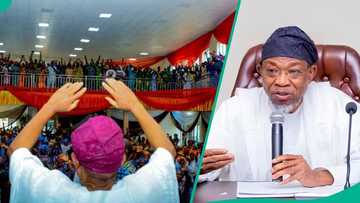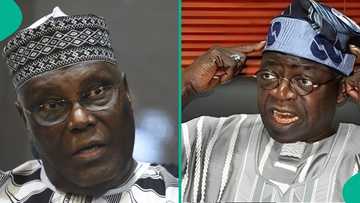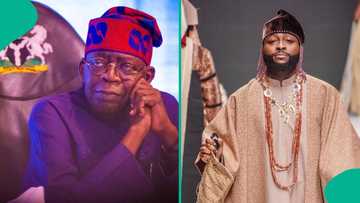“Honesty Now Seen as Lack of Ambition”: Development Strategist Decries Nigeria’s Moral Decay
- Nigeria is losing its soul to a silent epidemic, warns Henry Ekweonu, a development strategist and reform expert
- In his reflection shared with Legit.ng, young people chase dangerous symbols of success, ignoring what truly builds a future
- He observed that something once seen as a virtue now invites suffering, and that twist is breaking the nation
In a sobering reflection sent to Legit.ng, a conflict and development strategist with expertise in security sector reform and ethical governance, Henry Ekweonu, sounded the alarm over what he describes as Nigeria’s deepening moral crisis, warning that the country is facing a fundamental collapse of values that threatens its very foundation.

Source: Getty Images
"A nation’s strength lies not in its resources, but in the character of its people. When that character erodes, even the most blessed land becomes a curse to its inhabitants," he remarked.
According to Ekweonu, the corruption, exploitation, and ethical decline that have become commonplace in Nigerian society are not isolated events but symptoms of a larger societal breakdown.
“Walk through any Nigerian city today, and you’ll witness a troubling phenomenon: a society that has fundamentally lost its way,” he said.
Ekweonu equally drew attention to the country’s growing materialism, particularly among young people, where success is increasingly equated with conspicuous consumption rather than contribution or integrity.
“Children who should be focused on education and character development are instead fixated on acquiring luxury cars, a Mercedes-Benz has become the ultimate symbol of “making it.”
"Teenagers create birthday wishlists that include iPhone 16s and requests for 10 million naira, not for business ventures or educational pursuits, but for the simple pleasure of flaunting wealth.”
He warned that such trends are shaping a toxic value system where even romantic relationships are now measured by financial displays rather than emotional connection or shared principles.
Strategist on the high cost of being upright
Ekweonu, who is also a conflict management expert, pointed to troubling dynamics in Nigeria’s professional environment, where he says mutual exploitation has become the norm.
“Employers routinely overwork their staff while deliberately underpaying them… In response, employees often resort to creative ways of circumventing company resources for personal gain.”
This culture, he said, is reshaping the national understanding of character, with honesty often dismissed as weakness and dishonesty glorified as being “sharp.”
At the heart of Ekweonu’s reflection is a concern about trust—or the lack thereof—in Nigerian society. Reflecting on business partnerships and social interactions, he observed a growing skepticism that undermines cooperation.
“Business partnerships, once built on handshakes and mutual respect, are now approached with the assumption that one party will inevitably cheat the other. This isn’t paranoia — it’s a rational response to lived experience.”
Without trust, he argued, economic innovation, collaboration, and social cohesion will suffer.
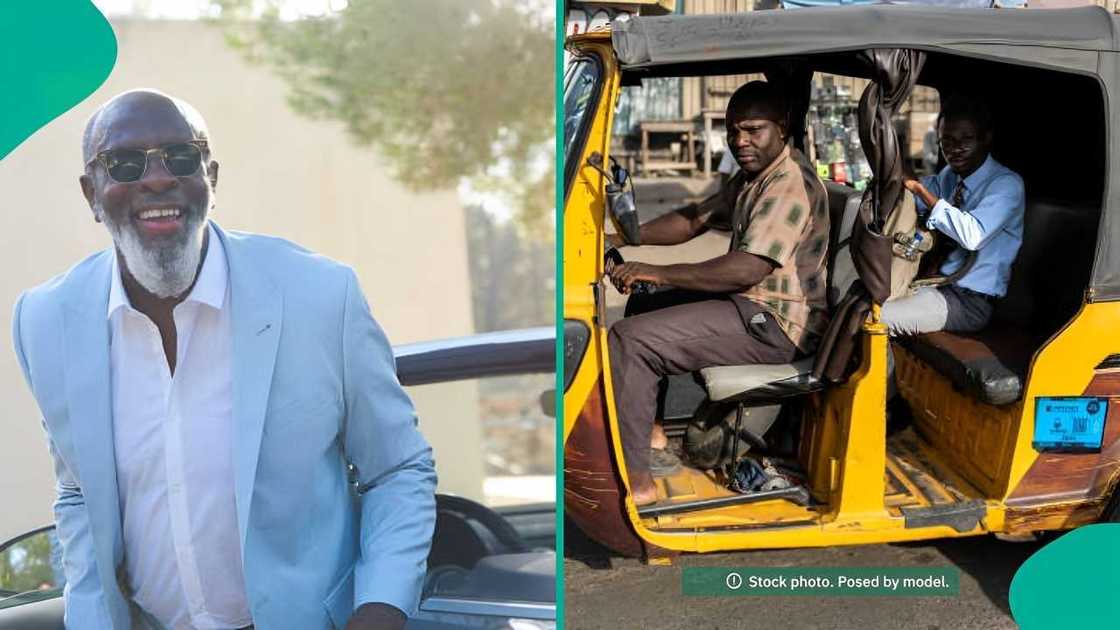
Source: Getty Images
The concerned citizen noted that even education, once seen as a ladder of opportunity, has not been spared:
“Parents, desperate to secure their children’s futures, resort to ‘miracle centers’… In trying to secure their children’s futures, these parents are actually undermining the very foundation of meaningful success.”
He lamented a system that punishes integrity and celebrates ill-gotten wealth, sending a dangerous message to the next generation.
Perhaps most dâmn!ng is Ekweonu’s observation of the perceived relationship between honesty and economic hardship in today’s Nigeria.
“When being upright means facing economic hardship, and corruption offers the path to prosperity, we’ve created a society that actively discourages moral behavior.”
According to him, this dynamic doesn’t just harm individuals; it institutionalises moral failure and creates a culture that rewards wrongdoing.
Ekweonu further described a widespread contradiction in the way Nigerians navigate faith, morality, and everyday life.
“We attend churches and mosques, professing faith in moral principles, then return to workplaces and communities where those same principles are abandoned… We’ve become experts at compartmentalizing our moral beliefs.”
He stressed that the result is a nation simultaneously decrying corruption while benefiting from it, a cycle that reinforces decline.
Can Nigerians change Nigeria? Ekweonu asks
To restore the country’s moral fabric, Ekweonu insisted that change must begin with individuals, not just government policy.
“Nigeria’s crisis isn’t fundamentally economic or political — it’s moral. No amount of policy reform will succeed if we don’t address the underlying value system that drives individual and collective behavior.”
He called for a national redefinition of success to include education, service, and impact. He also urged Nigerians to rebuild trust, reward honesty, and transform education to emphasise character alongside achievement.
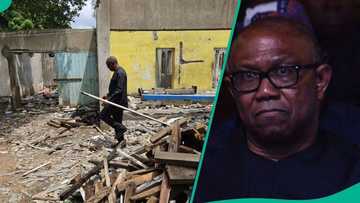
Read also
"Nigeria is lawless": Obi declares as unidentified men demolish his brother's property in Lagos
“Every time we choose honesty over expedience… we contribute to rebuilding our nation’s moral foundation,” he noted.
"We must stop waiting for someone else to fix our society. The transformation of Nigeria begins with the transformation of Nigerians."
Ekweonu, who noted his views are personal observations intended to provoke thoughtful dialogue about the country’s moral and ethical direction, concluded with a challenge to all citizens:
“The question isn’t whether Nigeria can change — it’s whether we’re willing to change Nigeria. The choice, as always, is ours.”
Grassroots reform key to Nigeria’s true change - Analyst
Legit.ng earlier reported that political analyst Tobi Olukoya dismissed elite-driven solutions, insisting Nigeria’s real transformation must start from the grassroots.
He said Nigeria's change depends on civic values, early reorientation, discipline, and service, not recycled leadership faces.
Olukoya warned that silence and blame won't work, adding that true transformation begins with character-building across homes and communities.
Proofreading by James Ojo, copy editor at Legit.ng.
Source: Legit.ng


